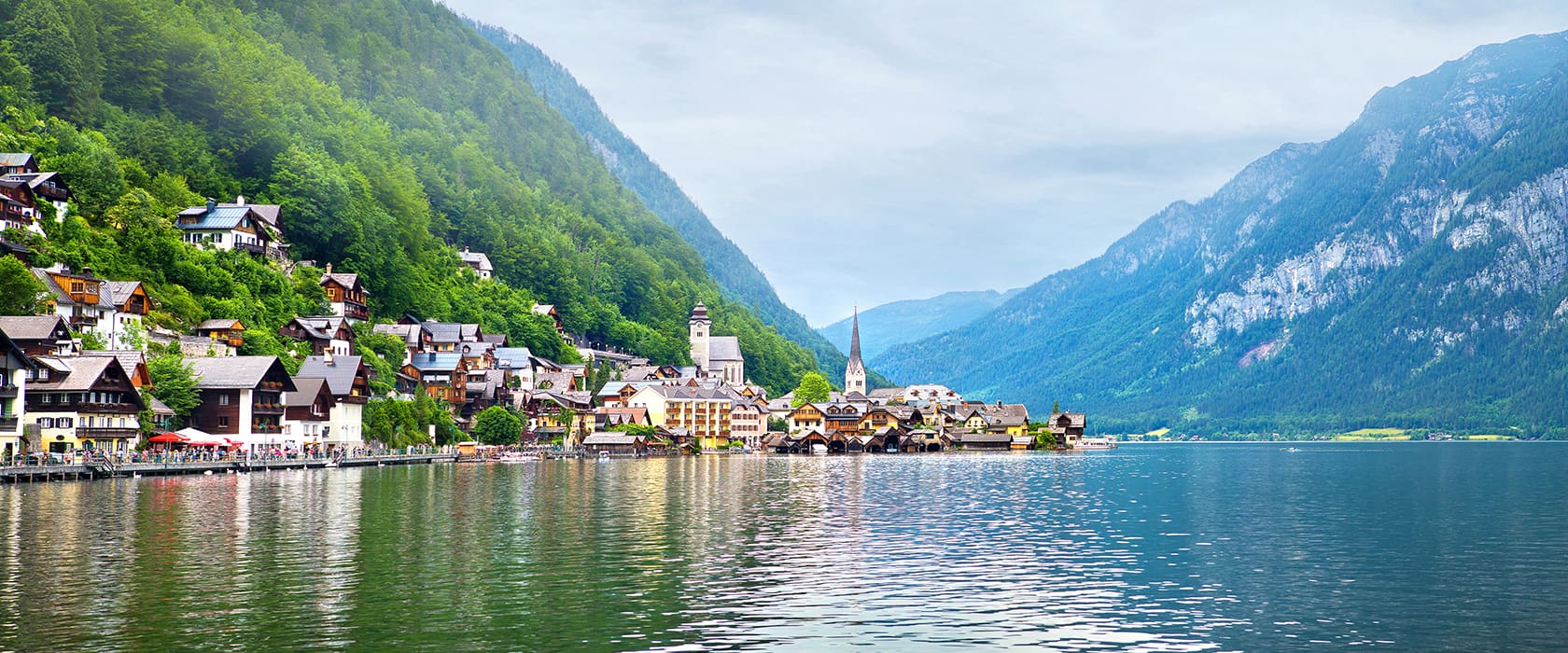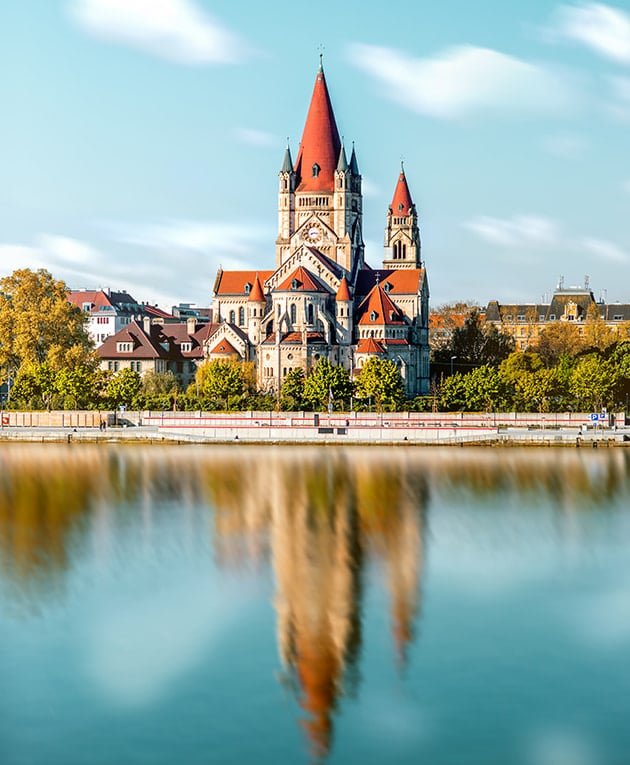-
Popular search terms
A Comprehensive Guide to Studying in:
Austria

While it has a small population, a Master in Austria has long been a popular choice for international students. Its historic capital, Vienna, was an international hub of culture, literature, and politics, throughout the 19th and early-20th-century, and was once the third-most populous city in Europe. Austria has since blossomed into a wealthy nation with some of the highest living standards in the world. Vienna is the biggest and most famous city, but the likes of Salzburg, Graz, and Linz also attract a significant number of visitors every year.
You’ll find more than 70 universities and business schools throughout Austria with several master’s programs taught entirely in English. Tuition fees at the country’s public universities are free for EU/EEA citizens, while non-EU/EEA citizens can still find some of the most affordable fees in the continent despite the country’s excellent reputation for higher education. Austria is also ideally located in central Europe, making it the perfect base for exploring the continent. However, with a high quality of life, world-famous culture, and incredible natural scenery, you might decide to simply stay put in Austria.

Frequently Asked Questions
FAQ
Did You Know? Fun Facts About Austria
- 1 Austria has consistently been voted as offering one of the highest standards of living in the world.
- 2 Austrians work an average of 45 hours a week, longer than any other Europeans.
- 3 With over 900 companies active in biotechnology or pharma or medical devices businesses, life sciences are an important (and growing) part of the Austrian economy.
- 4 The Austrian Alps cover 62% of the country's total land area.
- 5 Austria is one of the most eco-friendly countries in the world. Most of their energy comes from renewable sources and about 63% of waste is recycled.
Which Visas & permits do i need in Austria
If you’re a student coming from the EU/EEA or Switzerland, you do not need a visa to study in Austria. You’ll simply need a valid travel document (passport or identity card). However, it is important to note that everybody who comes to live in Austria has to register at the registration office at their place of residence within three days of their arrival. Check the documents you need to take with you. You will also need to register with the local authority in the province of your residence. This has to be done in person within four months after arrival. If you are coming from a non-EU/EEA country or Switzerland, you need to apply for an Austrian visa at an Austrian consulate or embassy before you arrive. You will also need to extend your initial visa into a residence permit for study purposes after arriving in Austria. All students need to have the financial means to support themselves in Austria for the duration of their studies (EUR€515.30 per month for students under 24 and EUR€933.06 for students over 24).
EU/EEA, Swiss, and Croatian national students are allowed to work in Austria without a work permit. All other students need a work permit.
Banking in Austria
If you already have a European bank account, you may not need to open an Austrian bank account (although you certainly can). If you have a bank account from a non-European country, it might be more convenient for you to open a bank account in Austria to pay bills and complete other transactions quickly and inexpensively.
To open a bank account in Austria as an international student, you need to go to a branch in person. You may need to make an appointment to meet with someone who speaks English if you do not speak German. Make sure to bring proof of identity, proof of residency, and proof of your student status. Some of Austria’s main banks include Bank Austria, Erste Group Bank, and Raiffeisen Zentralbank.
What do I need to know about healthcare in Austria
Students from EU/EEA countries do not need Austrian health insurance, but they do need to obtain a European Health Insurance Card (EHIC), which you can do free of charge. Some EU/EEA students may want to contract private insurance for extended and/or specific benefits, such as dental coverage.
International students from non-EU/EEA countries need to find private health insurance for the duration of their studies. They can choose between international insurance options or local public insurers in Austria, like Österreichische Gebietskrankenkasse. If you’d like to opt for the latter option, application forms are available at various branch offices and the Austrian National Union of Students.
Housing options for students in Austria
Living in Austria, particularly in Vienna, can be expensive. It can also be difficult to find housing. Unlike many other countries, Austria does not have a tradition of offering on-campus housing. It is more common for students to live in shared, private apartments or student housing communities. Some schools might have residence halls available, but make sure to ask your school or student union about this. Whatever option you choose, it’s important to start looking as early as possible.
OeAD is a non-profit student residence provider in Austria. They offer comfortable, reasonably-priced accommodation across the country. They also partner with many Austrian universities. Their accommodation options usually range between EUR€300 and €600 per month. Shared, private apartments also have a similar price range depending on where you are located.
What are the public transport options in Austria
Austria is a small country with an efficient public transportation system. The country’s national rail company, ÖBB, boasts a punctuality rate of 97%. It is very common for Austrians to take the train between different cities or even European countries. Many Austrian cities are also perfectly sized to walk or bike around but also have bus and tram systems. Vienna is the only city with a metro system. ÖBB offers several discounts, including for young people (under 26).
You will not need a car to get around Austria unless you’re going on a weekend trip. If you have a driver’s license from an EU/EEA country, you can drive in Austria without a problem. If you have a driver’s license from another country, you will be able to drive with it (translated into German) and an International Driving Permit (IDP) for six months. After that, you’ll need to convert it into an Austrian license.
How much does a Big Mac cost in Austria
The Big Mac Index was invented by The Economist in 1986 as an informal way of measuring the purchasing power parity (PPP) between two currencies. The price of a Big Mac in Austria is EUR€4.12 (equivalent to US$4.35 and JP¥556). For US$ 50, you can buy just under two Big Macs.
Austria is a relatively expensive place to live. Therefore, student living costs in Austria are high. International students should budget a minimum of EUR€12,000 (US$12,700) per year for shared accommodation, food, transportation, and basic personal requirements. You may need to budget more for rent if you live in Vienna.
